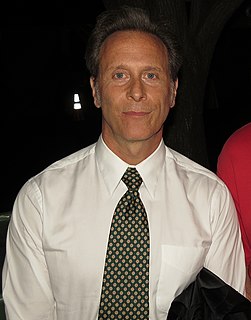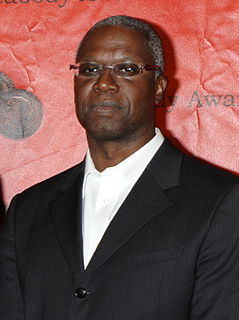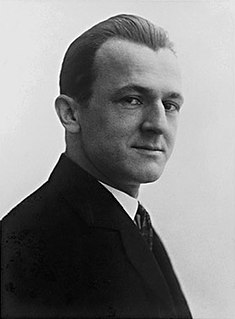A Quote by Leon Trotsky
Transcending class distinctions, the speaker [Stalin] portrays the relation between the bourgeoisie and the proletariat as a mere division of labor. The workers and soldiers achieve the revolution, Guchkov and Miliukov "fortify" it.[...] This superintendent's approach to the historical process is exactly characteristic of the leaders of Menshevism, this handing out of instructions to various classes and then patronizingly criticizing their fulfillment.
Quote Topics
Achieve
Approach
Between
Bourgeoisie
Characteristic
Class
Class Distinction
Classes
Distinctions
Division
Division Of Labor
Exactly
Fortify
Fulfillment
Handing
Historical
Instructions
Labor
Leaders
Mere
Out
Process
Proletariat
Relation
Revolution
Soldiers
Speaker
Stalin
Then
Transcending
Various
Workers
Related Quotes
Marx's Kapital is not a treatise on socialism; it is a gerrymand against the bourgeoisie. It was supposed to be written for the working class, but the working man respects the bourgeoisie and wants to be a bourgeoisie. Marx never got a hold of him for a moment. It was the revolting sons of the bourgeoisie itself, like myself, that painted the flag red. The middle and upper classes are the revolutionary element in society. The proletariat is the conservative element.
Our enemies are all those in league with imperialism - the warlords, the bureaucrats, the comprador class, the big Landlord class and the reactionary section of the intelligentsia attached to them. The leading force in our revolution is the industrial proletariat. Our closest friends are the entire semi-proletariat and petty bourgeoisie. As for the vacillating middle bourgeoisie, their right wing may become our enemy and their left wing may become our friend - but we must be constantly on our guard and not let them create confusion within our ranks.
What is Communism? Communism is the doctrine of the conditions of the liberation of the proletariat. What is the proletariat? The proletariat is that class in society which lives entirely from the sale of its labor and does not draw profit from any kind of capital; whose weal and woe, whose life and death, whose sole existence depends on the demand for labor.
What I did that was new was to prove that the existence of classes is only bound up with particular, historical phases in the development of production; that the class struggle necessarily leads to the dictatorship of the proletariat; and that dictatorship itself only constitutes the transition to the abolition of all classes and to a classless society.
Let me go out on a limb and suggest that those who see hints of a new class ideology developing around information technology are not necessarily wild-eyed. "Bit-twiddlers" are neither exactly proletariat nor bourgeoisie. They may not own the means of production in the sense that Marx argued, but they certainly do have significantly control over those means, in a more profound way than the term "symbols analysts" or "knowledge workers" captures. As a rough generalization, they value science and technological problem-solving elegance equally at least with profit.
The bourgeoisie, which far surpasses the proletariat in the completeness and irreconcilibility of its class consciousness, is vitally interested in imposing its moral philosophy upon the exploited masses. It is exactly for this purpose that the concrete norms of the bourgeois catechism are concealed under moral abstractions...The appeal to abstract norms is not a disinterested philosophic mistake but a necessary element in the mechanics of class deception.
As we know, the goal of every struggle is victory. But if the proletariat is to achieve victory, all the workers, irrespective of nationality, must be united. Clearly, the demolition of national barriers and close unity between the Russian, Georgian, Armenian, Polish, Jewish and other proletarians is a necessary condition for the victory of the proletariat of all Russia.
Only the defeat of the proletariat in Germany in 1923 gave the decisive push to the creation of Stalin's theory of national socialism: the downward curve of the revolution gave rise to Stalinism, not to the theory of the permanent revolution, which was first formulated by me in 1905. This theory is not bound to a definite calendar of revolutionary events; it only reveals the world-wide interdependence of the revolutionary process.
After the countrywide victory of the Chinese revolution and the solution of the land problem, two basic contradictions will still exist in China. The first is internal, that is, the contradiction between the working class and the bourgeoisie. The second is external, which is the contradiction between China and the imperialist countries. Consequently, after the victory of the people's democratic revolution, the state power of the people's republic under the leadership of the working class must not be weakened but must be strengthened.
The People's democratic dictatorship is based on the alliance of the working class, the peasantry and the urban petty bourgeoisie, and mainly on the alliance of the workers and the peasants, because these two classes comprise 80 to go per cent of China's population. These two classes are the main force in overthrowing imperialism and the Kuomintang reactionaries. The transition from New Democracy to socialism also depends mainly upon their alliance.






































